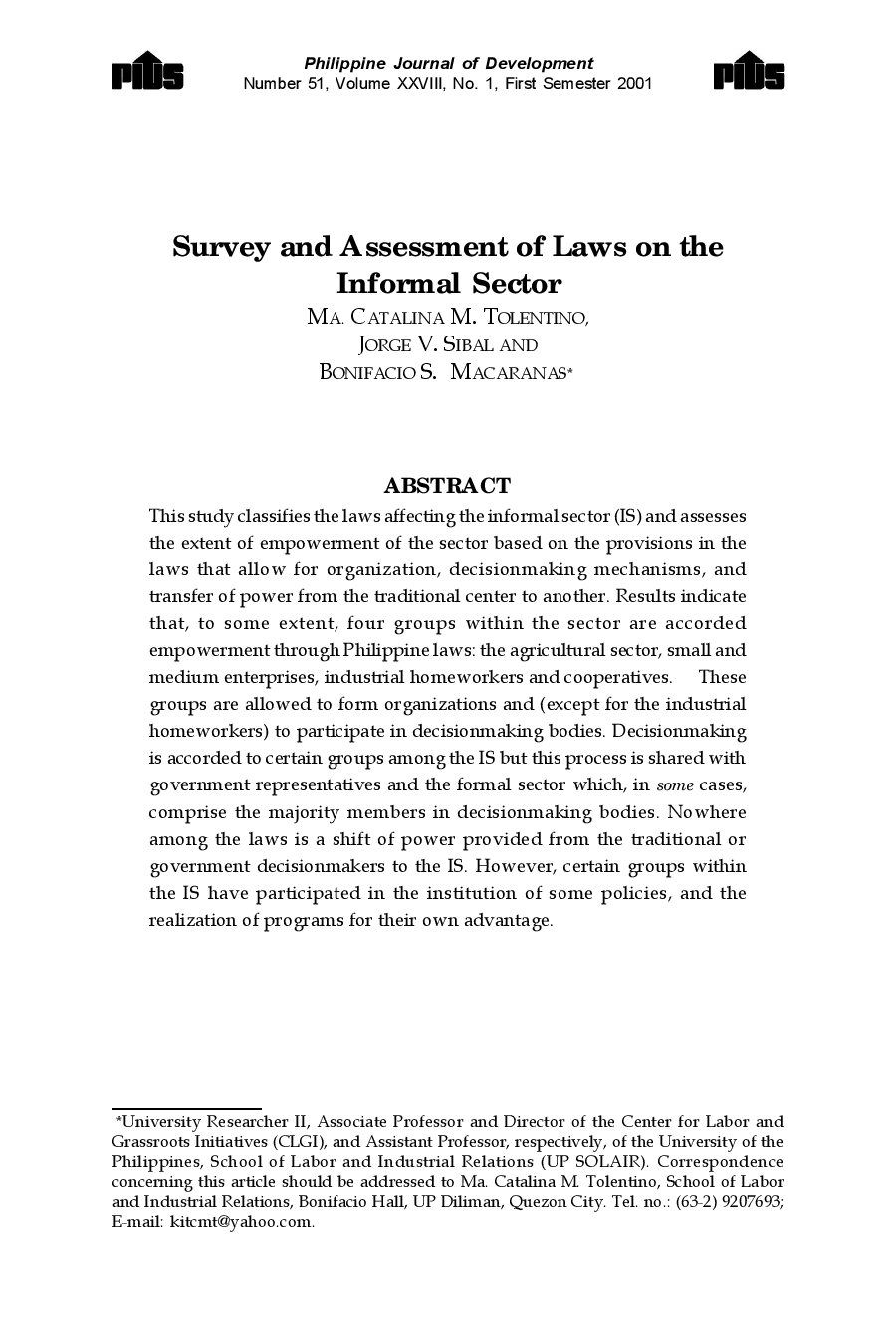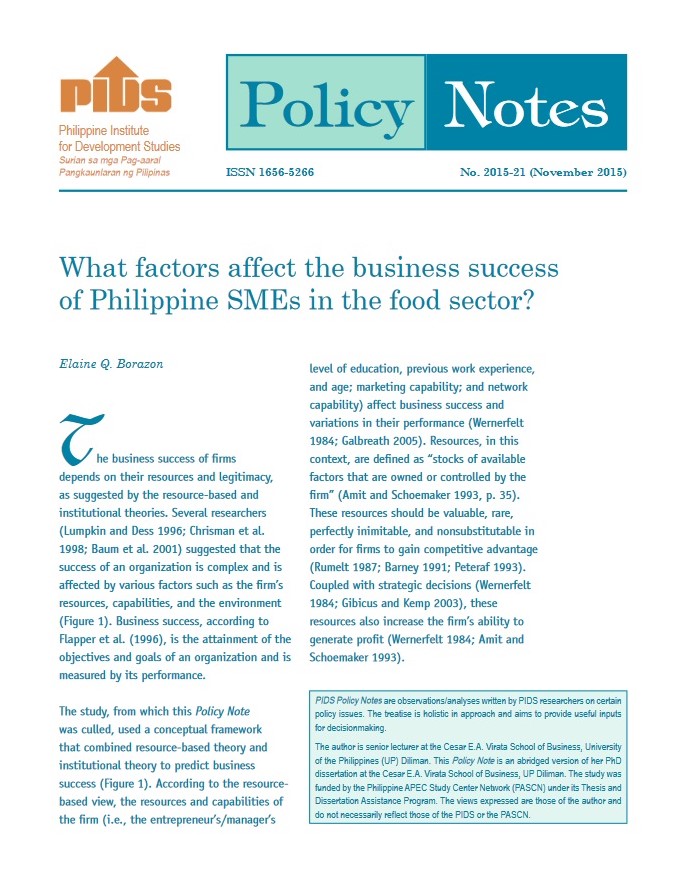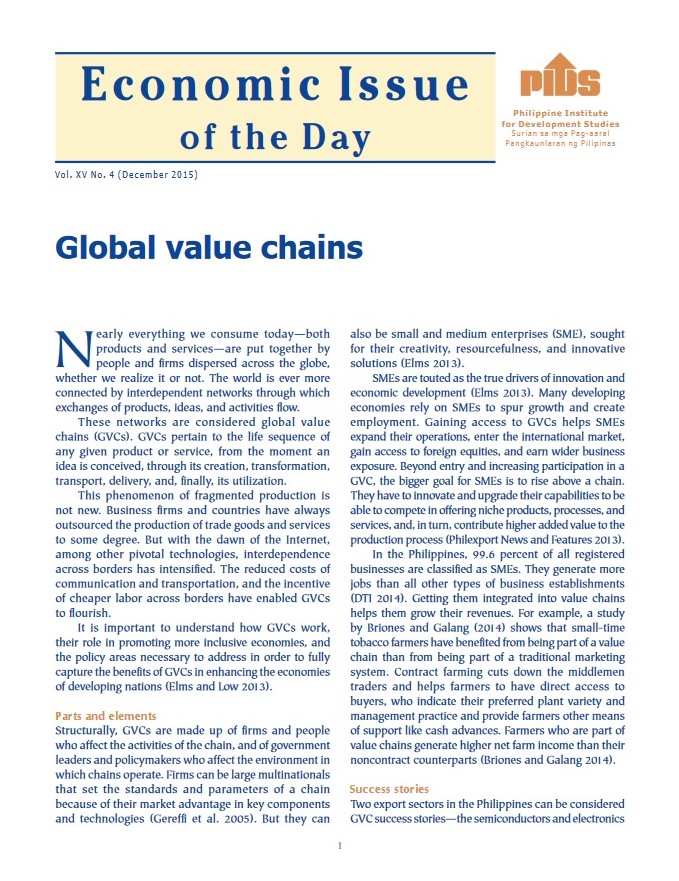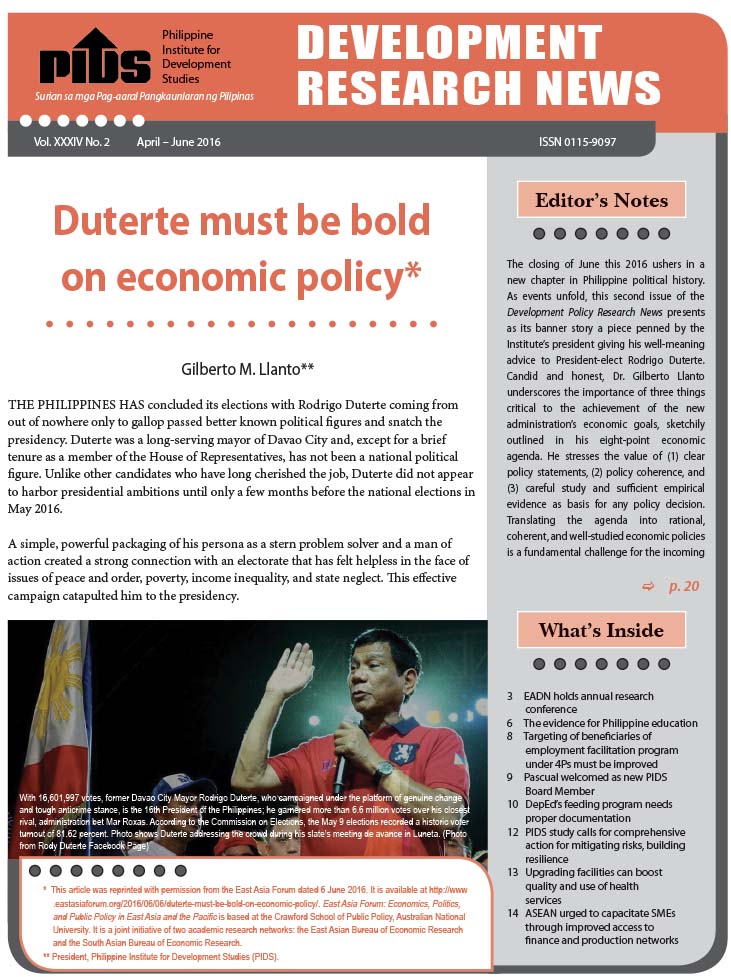This study classifies the laws affecting the informal sector and assesses the extent of the empowerment of the sector based on the provisions in the laws that allow for organization, decision making mechanisms and transfer of power from the traditional center to another. Results indicate that, to some extent, four groups within the sector are accorded empowerment through Philippine laws: the agricultural sector, small and medium enterprises, industrial home workers and cooperatives. These groups are allowed to form organizations and to participate in decision making bodies. Decision making is accorded to certain groups among informal sector, which, in some cases, comprise the majority members in decision making bodies. Nowhere among the laws is a shift of power provided from the traditional or government decision makers to the informal sector. However, certain groups within the IS have participated in the institution of some policies and the realization of programs for their own advantage.













